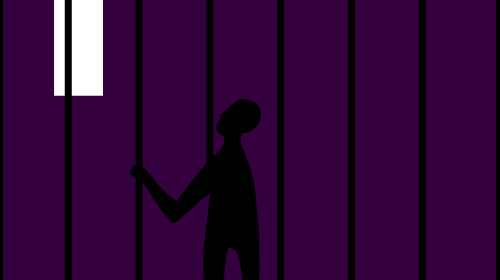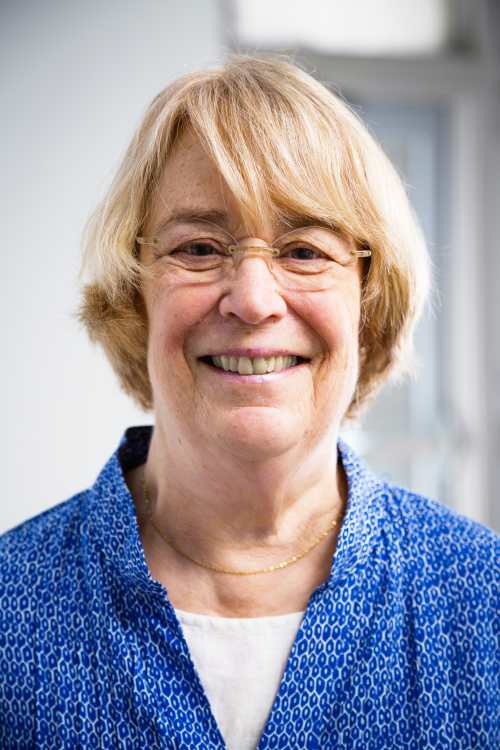IndieVoices Podcast: College for Inmates Makes Sense for Prisoners and Society
We recently reviewed a book called Liberating Minds: The Case for College in Prison, published by The New Press. What first struck me about the book was the subtitle, The Case for College in Prison, as if a case needs to be made. To me, it seems like a no-brainer. Of course there should be educational opportunities in prison. It’s the perfect place for education—that is, if the idea of prison truly is “corrections.”

But, as know, in the United States, our draconian criminal justice system is not one that welcomes the idea of granting human rights to prisoners, especially something as fundamental to a democracy as a right to an education.
During the last presidential campaign, one of the proposals going around among the Democrats was free college for everybody. To some, it came as a ridiculous shock. Really? A right to an education? To others, it makes all kinds of economic sense. It’s already been tried at the local level, from Kalamazoo, Michigan, to New York State.
So, given this kind of cultural and political baggage, authors like Ellen Condliffe Lagemann need to present the idea of college in prison as a “case.” But if anybody can effectively make that case it’s Lagemann. She is is the Levy Institute Research Professor at Bard College, where she is also the Distinguished Fellow in the Bard Prison Initiative.
Her book profiles inmates, many of whom come from backgrounds where their education was interrupted or of poor quality. But through prison education programs, they talk about how being held to a high standard, the prisoners learn to internalize a belief in their own abilities, or discover talents they did not know they had, in an environment they are often treated as less than human. To them, education is not just about getting good jobs but it’s about being an enlightened citizen and living a satisfying life.
Ellen joined me on our special podcast devoted to criminal justice reform. Listen to the entire interview here, or read some of the highlights below.
Interview Highlights
On the eagerness of her prison students to learn

Ellen Condliffe Lagemann: 'Educated people when they leave prison ... are much more likely to get jobs and pay taxes.'
The students are simply remarkable. They are just as bright as the students I used to teach at Harvard, and NYU, and at Columbia. They’re eager for education and they’re interesting to teach. They ask wonderful questions, they work extremely hard, and the students have kept me interested in this program ever since. Most of them have not had the privilege of a very good public education before they go to prison. Most of them have not graduated from high school, in fact. So they haven’t had educational opportunities that bring out the brightness in some of the people.
On the economic argument for college in prison.
It costs roughly $5,000 a year to send somebody to college. It costs roughly $50,000, in New York State at least, to hold somebody in prison. If you send somebody to college, you can reduce the return rate to prison dramatically. It goes from roughly 50 percent nationally to almost zero. And that’s true not just of the Bard Prison Initiative, but for most of the college programs I’ve heard of. So, if you don’t want people going back to prison and costing huge amounts of money, invest less in terms of dollars, but more in terms of human capacity and social return, in their education.
Educated people when they leave prison—and 97 percent of the people in prison will go home someday—are much more likely to get jobs and pay taxes. So, they go from being a drain on the public purse to being a contributor.
On education’s place in overall criminal justice reform.
There is no panacea for mass incarceration. What we need is a variety of reforms in tandem with one another. We need sentencing changes, we need to get rid of the disenfranchisement that happens after people leave prison. The Ban the Box movement has taken hold in many states and increasingly it is increasingly becoming illegal to ask people whether they have a conviction. There are many reforms that are necessary. My argument is simply one of the cheapest and easiest that we can do right now is college in prison.
You can also subscribe to all our IndieVoices podcast episodes on iTunes, Soundcloud, and Google Play.

Howard Lovy is executive editor at Foreword Reviews. You can follow him on Twitter @Howard_Lovy
Howard Lovy
